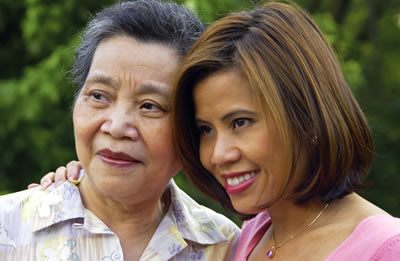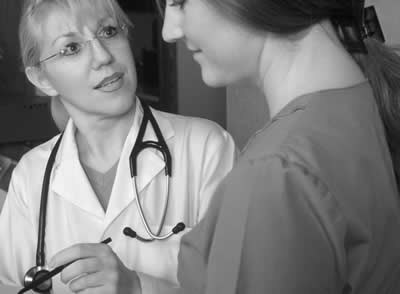|
RENEWING THE FIGHT AGAINST BREAST CANCER

Greetings!
October has come and gone and so has Breast Cancer Awareness Month. The summer leaves are gone and the ribbons and pink specialty products are almost all put away. But like the reality of a cold winter setting in, the reality of this breast cancer continues. This most feared of all cancers continues to befall, maim and kill too many - our sisters, mothers, daughters and friends. And, while black women are less likely to develop breast cancer than white women, they are more likely to die from it.
Such persistent breast cancer disparities are well documented, and for more than 20 years, YWCA Boston has worked tirelessly to reduce them. The figures are improving ever so slightly, we cannot rest on our laurels.
Focusing on new research and best practices, YWCA Boston has redoubled its efforts to ensure that its health outreach, education, medical referrals and support to more than 4,000 women and girls are directly creating positive outcomes for them.
From broadening our education and referral role with seven community health centers, to implementing a new data management and client assessment system, to launching new technologies and programs to connect women with their healthcare, your YW is doing more to improve women's health. We hope you enjoy learning about our work and that you will be interested in joining our fight against breast cancer.
Sincerely,
Sylvia Ferrell-Jones
President & CEO
YWCA Boston
|
|
|
NEW YW TECH CONNECTS WOMEN TO CARE
 After a review of several new evidence-based programs shown to be effective in connecting women to their health care, YWCA Boston has adapted a Washington-D.C.-based program to remind women to schedule their annual mammograms and physical exams, and to conduct their monthly breast self exams. After a review of several new evidence-based programs shown to be effective in connecting women to their health care, YWCA Boston has adapted a Washington-D.C.-based program to remind women to schedule their annual mammograms and physical exams, and to conduct their monthly breast self exams.
The program utilizes individualized cell phone texting to keep women up-to-date on their exam schedules/
"Research shows that most women are concerned about their health but that it is often difficult for them to remember to make critical medical appoints," says YWCA program coordinator Jennifer Cedor. "Our new YWCA program helps women to take those next critical steps to better health."
Would you like reminders to schedule your annual physical exam, mammogram and monthly self breast exam? If so,
simply enroll in YWCA Boston's free to low-cost* Healthy Text Reminder Service, and YWCA Boston will send you a cell phone text reminder to schedule these important activities.
To enroll, please click here.
*YWCA Boston does not charge any fees for its Healthy Text Reminder Service program. However, regular phone carrier charges for texts, if any, do apply.
|
|

PHONE-A-THON VOLUNTEERS BRING WOMEN BACK INTO CARE
Initially launched as part of the 2009 national Breast Cancer Awareness Month, YWCA Boston has conducted four breast cancer referral phone-a-thons thus far in 2010, connecting women who have lapsed in their exams to their health care providers.
With support from Neighborhood Health Plan and Whittier Street Community Health Center, more than 50 trained YWCA volunteers called more than 2,000 women about their breast health. Callers connected with more than 600 of the women and talked about the importance of ongoing preventative activities. Of those called, more than 250 were either referred to a health care provider or scheduled on the spot for a mammogram or physical exam.
To join our growing corps of volunteers, click here.
|
Spirit Wise Sisters Moves Beyond Just Support to Advocacy and Education
| Adreenne Law, third from the right, and other members of Spirit Wise Sisters, May 2010 |
YWCA Boston's Spirit Wise Sisters has been providing support to African-American breast cancer survivors for six years. To the women who participate in the group's monthly meetings, Spirit Wise Sisters is a treasured source of friendship, information, resources, advice, encouragement, and time away from the everyday stresses that can make it difficult for survivors to focus on their own needs.
A tight knit group, the Sisters have begun to move from just providing support to each other to providing education and advocacy for other women faced with breast cancer.
Over the last several years, group members have become increasingly involved in community programs including the city's Pink & Black campaign, the Mass Breast Cancer Coalition and the Boston Public Health Commission's REACH 2010 coalition. Members, like Adreene Law, are also supporting other YWCA Boston health initiatives.
Adreenne has been with the group for five years now. She says it means a lot to her to know that other African-American women have gone through what she's gone through. She loves gaining new insight from special guest speakers, but what really makes the group special to her is learning from the stories of other survivors, and knowing that she has something to share with new members of the group.
Like other members of Spirit Wise Sisters, Adreenne feels strongly about helping other women who are in the position she once was, and this desire to give back goes beyond mentoring new group members. Adreenne was one of many Spirit Wise Sisters who volunteered at YWCA Boston's quarterly Breast Health Phone-a-Thons, reminding women who had lapsed with their annual checkups to get their annual mammograms and clinical breast exams.
When Adreenne called women who already planned on getting a mammogram, it made a difference just to "show that someone cared." And when she called women who were afraid to get a mammogram, she shared her story as a survivor of breast cancer, and encouraged the women to overcome their fear and be pro-active about their health. She even was able to connect these women to community health center staff members who could schedule appointments on the spot.
Adreenne said that overall, the phone-a-thons were a "spiritually uplifting" experience, especially since it was an opportunity to provide someone else with the advice and encouragement that she never received prior to her diagnosis. Looking back to her own experience, Adreenne says, "I wish someone had taken the time to call me."
To learn more about Spirit Wise Sisters or other women's health initiatives, please email healthwellness@ywcaboston.org.
|
|
YWCA's Hotel 140 Guests Get in the the Pink
This past month, YWCA Boston's historic landmark headquarters was awash awash in pink lights to raise awareness about breast cancer.
The building, located at 140 Clarendon Street next to the John Hancock Building, provides both affordable housing and a European-style hotel for Boston residents and visitors.
Throughout the month, more than 600 hotel guests were greeted by front desk and concierge staff wearing pink ribbons and a hotel lobby awash in pink lights. Signage noted the Hotel's commitment to the elimination of breast cancer and encouraged them to pick up YWCA information about detection and prevention.
Visit 140 Clarendon and think pink!

|
|
|
|
|
Breast Cancer Facts
Breast cancer is the most common cancer among women in the United States, other than skin cancer. It is the second leading cause of cancer death in women, after lung cancer.

70% to 80% of women who get breast cancer do NOT have a family history of this disease.
White women are slightly more likely to get breast cancer than African-American women. But African American women are more likely to die of breast cancer.

There is hope: breast cancer mortality is going down for women of all races. This is in part due to increased screening and to medical advances in treatment options.
|
|

|
|
Breast Health Basics
Follow these basic breast health tips to enjoy your good health
1) Exercise
Exercise has been proven to reduce the risk of breast cancer. Try to exercise a minimum of 40 to 60 minutes a week.
2) Breast Awareness
Starting in your 20s,
begin monthly self breast exams to become familiar with your breasts. Report any changes to to your doctor without delay.
3) Clinical Breast Exam
Have one conducted by your doctor or a nurse every three years if you are in your 20s and 30s, and every year by your doctor or nurse if you are 40 or older.
4) Mammogram
Start at age 40 and continue as long as you are in good health.
To learn more about breast cancer or other women's health issues, please contact YWCA Boston |
|
YWCA Launches Assessment Tools to Track Clients' Progress
With the advent of more sophisticated and proven methods for educating women and linking them to health resources, YWCA Boston has implemented new assessment tools and a data management system to track its clients' progress towards better preventative health behaviors including consistent detection and treatment activities.
Working with technical resources provided by breast health funders Susan G. Komen for the Cure and the Avon Foundation, YWCA has implemented new surveys of its clients and applied them to a new data management system, ETO software from Social Solutions, Inc.
"Our new assessment system allows YWCA health workers to determine where each of their clients are in their pursuit of healthier living," says YWCA programs director Anya Priester.
"By constantly assessing our clients, we will be able, over time, to determine the practices and approaches that best help women pursue better health."
|
|
HOW TO EXAMINE YOUR BREASTS
In the Shower
Fingers flat, move gently over every part of each breast. Use your right hand to examine the left breast, left hand for the right breast. Check for any lump, hard knot, or thickening. Carefully observe any changes in your breasts.
Before a Mirror
Inspect your breasts with your arms at your sides. Next, raise your arms high overhead. Look for any changes in the contour of each breast, a swelling, a dimpling of the skin, or changes in the nipples. Then rest your palms on your hips and press firmly to flex your chest muscles. Left and right breasts will not exactly match-few women's breasts do.
Lying Down
Place a pillow under your right shoulder and put your right arm behind your head. With the fingers of your left hand flat, press your right breast gently in small circular motions, moving vertically or in a circular pattern covering the entire breast. Use light, medium, and firm pressure. Squeeze the nipple; check for discharge and lumps. Repeat these steps for your left breast.
|
|

|
|
Racism and Women's Health
In July 2007, The Boston Globe reported this about the connection between racism and women's health:
"More than 100 studies -- most published since 2000 - now document the effects of racial discrimination on physical health." "Black women who pointed to racism as a source of stress in the lives developed more plaque in their carotid arteries - an early sign of heart disease - than black women who didn't." Learn more about the YWCA's anti-racism programs and national Stand Against Racism Day coming to Boston April 29, 2011 by clicking on the image below: |
|